Below are our 10 rules for a better investment experience
1. Focus On What You Can Control
A financial adviser can create a plan tailored to your personal financial needs while helping you focus on actions that add value.
This can lead to a better investment experience.

2. Markets Work
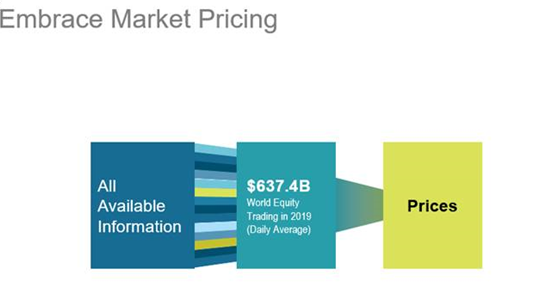
Capital markets are not perfect and prices are not always right, but markets are so competitive that it is unlikely an investor can systematically profit from mistakes in the market at the expense of other investors.
This trading aggregates a vast amount of dispersed information and drives it into security prices.
3. Invest, Don’t Speculate
Over time, only a small fraction of money managers outperform the market after fees, and it is difficult to identify them in advance.
Percentage of Funds that Outperformed the Index
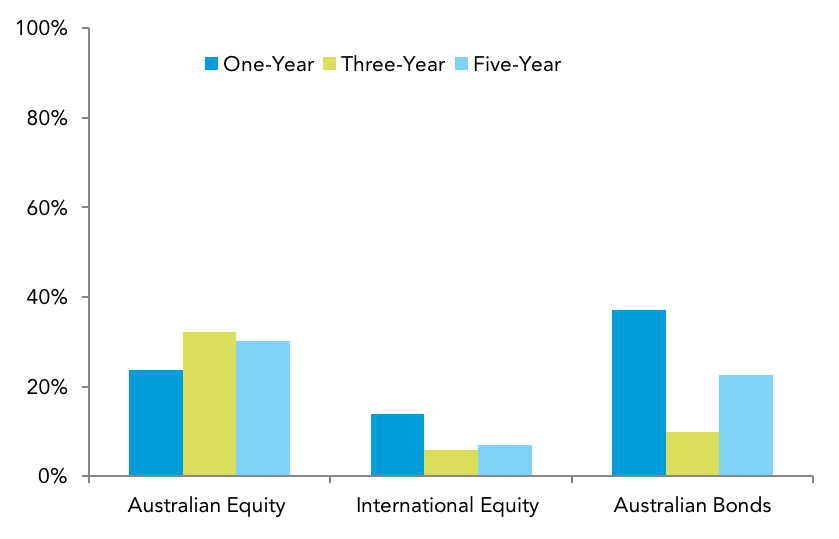
4. Let Markets work for you
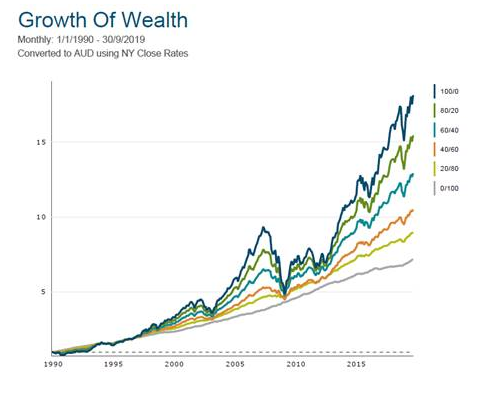
The financial markets have rewarded long-term investors.
People expect a positive return on the capital they supply, and historically, the equity and bond markets have provided growth of wealth that has more than offset inflation.
5. Consider the Drivers of Returns
Dimensions of Expected Returns
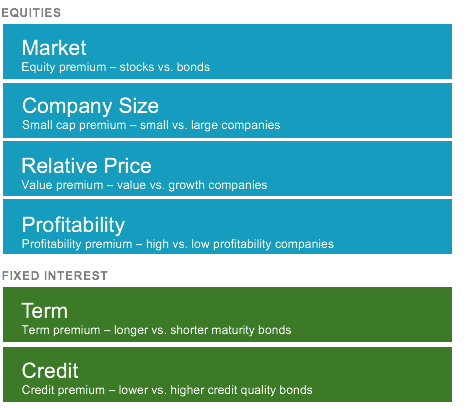
Academic research has identified these equity and fixed income dimensions, which point to differences in expected returns.
These dimensions are pervasive, persistent, and robust and can be pursued in cost-effective portfolios.
6. Practice broad Diversification
It’s not enough to diversify by security. Deeper diversification involves geographic and asset class diversity.
Diversification within Australia is not enough.
Holding a global portfolio helps to lower concentration in individual securities and increase diversification.
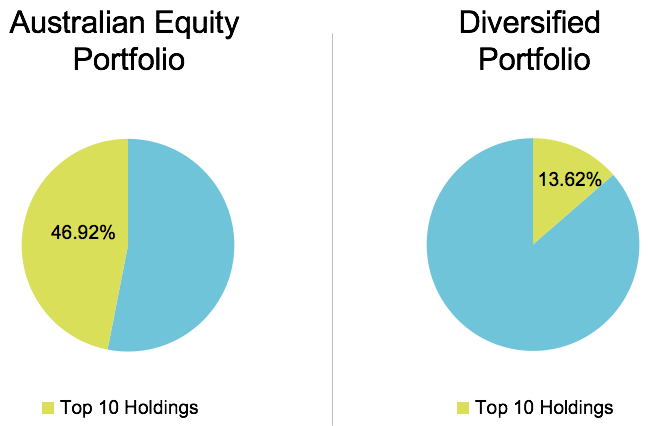
7. Avoid Market Timing
Annual Returns by Market Index
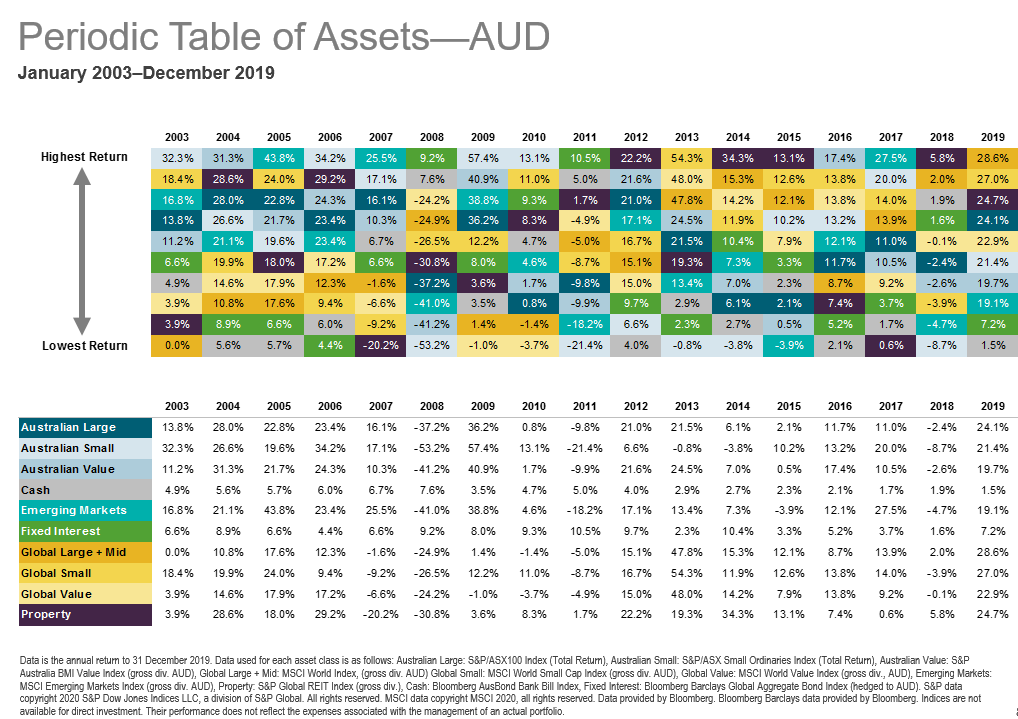
You never know which market segments will outperform from year to year.
By holding a globally diversified portfolio, investors are well positioned to capture returns wherever they occur.
8. Manage Your Emotions
Many people struggle to separate their emotions from investing. Markets go up and down. Reacting to current market conditions may lead to making poor investment decisions at the worst times.
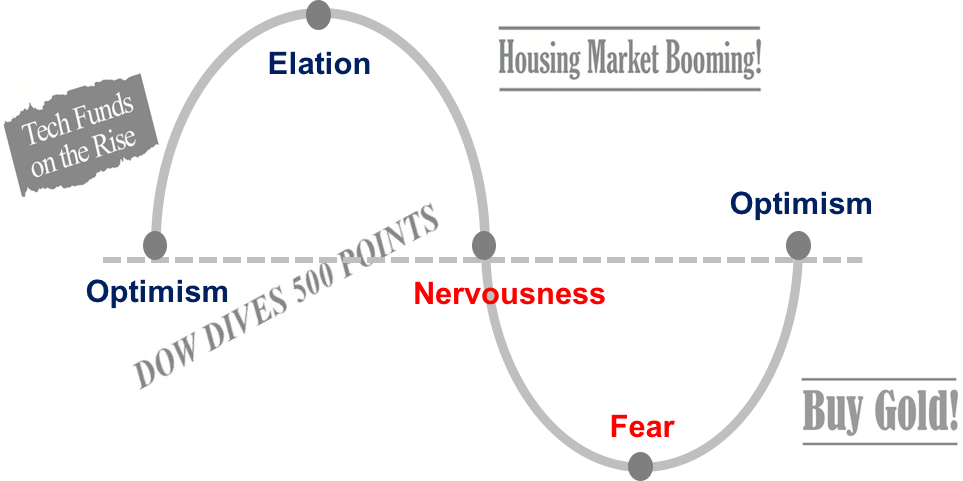
9. Look Beyond the Headlines

Daily market news and commentary can challenge your investment discipline.
Some messages stir anxiety about the future while others tempt you to chase the latest investment fad.
When tested, consider the source and maintain a long-term perspective.
10. Keep Costs Low
Many people struggle to separate their emotions from investing. Markets go up and down. Reacting to current market conditions may lead to making poor investment decisions at the worst times.
Net Growth of $1 Million

